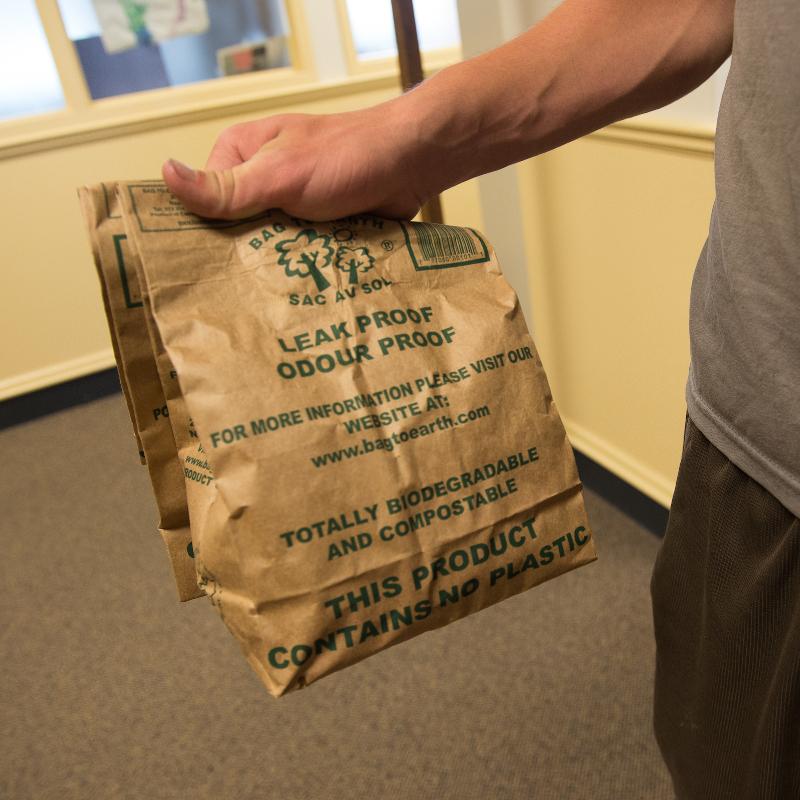UVM has been recycling for nearly 40 years and in 2022 was listed as one of Post-Landfill Action Network’s Top Ten Zero Waste Campuses. The total amount of waste generated on campus has steadily declined through three decades of campus-wide efforts to recycle, compost and promote zero waste principles.
Results and highlights
- Find out what to recycle at UVM from the Recycling and Zero Waste office, join the UVM Recycling listserv, and search for furniture and equipment.
- Find a Techno trash recycling box and recycle your electronic waste.
- Take the Eco-Reps' quiz on how to sort waste correctly on campus.
It's in Vermont's DNA.
Reducing food waste and composting scraps helps cut greenhouse gas emissions and minimizes dependence on landfills in Vermont. Starting July 2020, state law bans food scraps from the trash.
UVM supports this work daily in our dining halls, and also by offering community programs like the Master Composter Course
